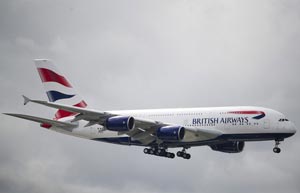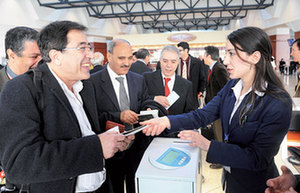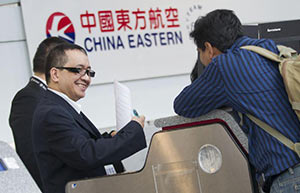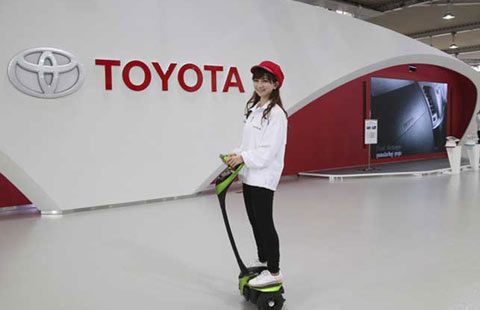Budget carriers ready for takeoff
By Wang Wen (China Daily) Updated: 2014-06-27 07:06China Eastern plans to turn China United Airlines - one of its subsidiaries based in Beijing - into a low-cost carrier. If approved, China United would become the first budget airline in the Chinese capital.
China Southern Airlines Ltd, the largest carrier by fleet, added more economy class seats on four aircraft of its subsidiary, Chongqing Airlines, early this year. Air China Ltd, the flag carrier of China, plans to transform one of its subsidiaries into a low-cost airline soon, industry sources said.
HNA Group, the parent company of Hainan Airlines, the fourth-largest carrier in China, already has two low-cost subsidiaries - West Air and Hong Kong Express - with other subsidiaries working on cutting costs.
"All our subsidiaries will be low-cost carriers, and Hainan Airlines will be the only full-service carrier," said Wang Yingming, executive chairman and executive president of HNA Aviation Holding Co Ltd.
According to Wang, most of the big carriers are maintaining a low profile about their LCC operations as the transformation is not complete and there are still some uncertainties.
Unlike the State-owned carriers, private airlines are more vocal about their LCC operations.
Jiuyuan Airlines, a Guangzhou-based low-cost subsidiary of Shanghai Juneyao Airlines Co Ltd, got the final approval from the authorities in February and plans to start flights in August.
The new carrier also made the largest aircraft purchase by a private Chinese airline, by purchasing 50 aircraft worth more than $6 billion from Boeing.
China Express, a regional carrier connecting southwest regions, also moved to low-cost operations with some tickets ranging from 8 yuan ($1.30) to 188 yuan in May. Wu Longjiang, president of China Express, said its fleet of small aircraft is cost-saving and connects a network of small cities, where demand for budget airlines is high.
"Market demand has played a big role in fueling demand for LCCs," said Wang from HNA Aviation. Low profit margins and rising fuel and human resource costs are driving the shift to LCCs, he said.
Although fuel prices have risen steadily, carriers cannot raise ticket prices due to stiff competition, Wang said, adding that the real challenge for most carriers is to maintain profitability.
The total profit of Chinese carriers was 16.24 billion yuan last year, 3.72 billion yuan less than the previous year, while their operating income increased by 5.2 percent during the same period, according to CAAC.
The high profitability of LCCs is an attractive option for most carriers, said Li Xiaojin, a professor at China Aviation University based in Tianjin.
 |
- Alibaba plans to list shares on NYSE
- Forex deposit rate caps lifted
- China Eastern Airlines launches direct flight to Toronto
- Top 10 best global green brands
- Regulator calls foul on World Cup 'regret' insurance
- Report calls for building inland nuclear power stations
- Infrastructure biggest challenge for Silk Road
- Prime London properties lure investors


















